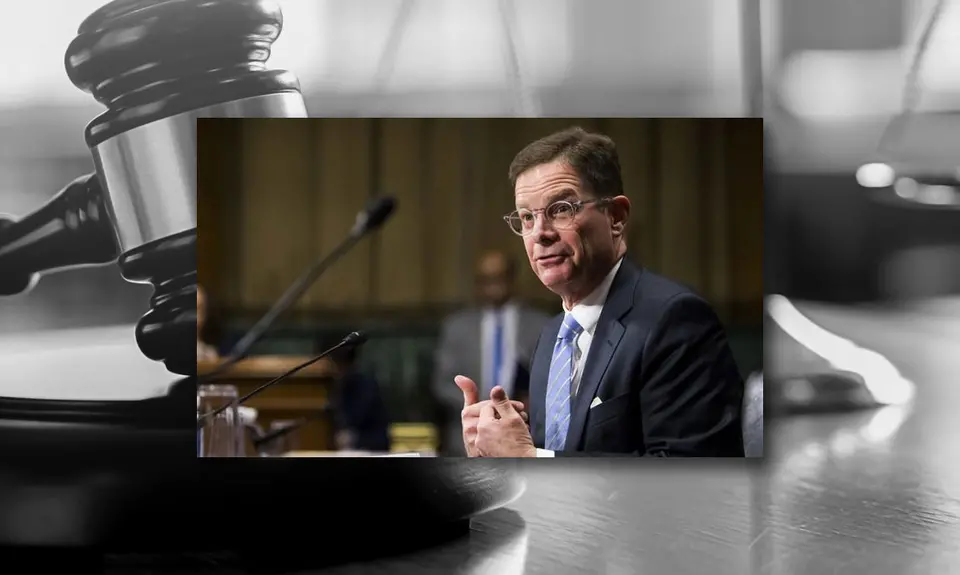“Our Courts, Our Fight” is a blog series documenting the harmful impact of President Trump’s judges on Americans’ rights and liberties and the need for the Senate to confirm President Biden’s federal court nominees to help counteract these effects . Supreme and appellate court cases in the series can be found by issue and by judge at this link.
Trump Fifth Circuit judge Kurt Engelhardt wrote an opinion, joined by Trump judge Kyle Duncan and a conservative Reagan nominee, which extended indefinitely its previous stay of the Biden Administration rule that requires large corporations to ensure that their workers are vaccinated for COVID-19, and prohibited the agency that issued the rule, the Occupational Safety and Health Administration (OSHA) from taking any steps to implement it. The November 2021 decision was in BST Holdings LLC v OSHA.
As explained previously in this blog, OSHA issued a rule on November 4 that requires companies with 100 or more employees to ensure that employees are vaccinated for COVID-19 or undergo weekly testing in order to combat the still-raging pandemic. Just a few days later, Trump judges Duncan and Engelhardt, joined by conservative judge Edith Jones, issued a brief order stopping the rule in its tracks, and called for briefs from Texas and others who challenged the rule and from OSHA. Although its opinion a week later did not make its injunction permanent, the panel did indefinitely extend the ban on the rule in an opinion by Trump judge Engelhardt.
Engelhardt claimed that the rule is likely to be struck down permanently because its “promulgation grossly exceeds OSHA’s statutory authority.” This claim has been directly contradicted by experts like former OSHA official David Michaels, who has explained that the rule is “clearly within OSHA’s authority, will save lives and make workplaces safe.” Others have also already criticized this part of Engelhardt’s opinion. For example, columnist Ruth Marcus noted that this conclusion rested partly on OSHA’s determination that no emergency justified a rule in May, 2020, before there was a delta variant or even a vaccine and other “changed circumstances.” Cornell law professor Michael Dorf has called Engelhardt’s conclusion “problematic,” pointing out that the rule “seems to fit [the] description” in the relevant Congressional law that OSHA determine that employees face “grave danger from exposure” to “agents” that are “physically harmful” and that the rule is “necessary to protect employees from such danger.” Overall, the opinion is yet another example of Trump judges seeking to second-guess the expertise and authority of expert federal agencies.
Engelhardt went on, however, to argue that even if the statute authorizes OSHA’s rule, there are “serious constitutional concerns” with the rule. Initially, he maintained that the rule “likely exceeds the federal government’s authority under the Commerce Clause.” He cited the five justices in the NFIB case who wrote that the Affordable Care Act’s individual mandate exceeds congressional authority under the Commerce Clause. But as Professor Dorf has noted, “NFIB has no relevance” because “no one questioned that Congress has the power” to impose the ACA’s employer mandate requiring them to provide health insurance to their employees. The OSHA rule regulates companies already in interstate commerce, and there are “numerous contexts” where Congress can and has required such companies to carry out certain actions as a condition of engaging in activity that the federal government can regulate. Dorf wrote that Engelhardt supports a theory under the Commerce Clause that is “reactionary and frankly bonkers.”
Engelhardt also suggested that Congress cannot properly delegate the authority to an agency like OSHA to adopt such a major rule, an argument that Professor Dorf explained is “clearly wrong under current doctrine.” Nevertheless, Trump judge Duncan further supported these claims in a concurring opinion. As Ruth Marcus pointed out, these arguments are “shots across the bow in an ongoing effort” by Trump judges and others to severely “limit the power of federal regulatory agencies” to help protect people’s health and safety.
Perhaps most disturbing was Engelhardt’s evaluation of the public interest and harm to others of continuing the ban on the OSHA rule. Engelhardt claimed that the stay was needed to avoid economic injury to businesses, to maintain “our constitutional structure,” and to “protect the liberty of individuals” to decide whether to be vaccinated. As Professor Dorf has pointed out, however, the “failure even to mention, much less count, avoiding illness and death” to countless Americans “as part of the public interest is stunning and, in a word, evil.”
The ruling by Trump judge Engelhardt is unlikely to be the last word on the OSHA rule. As early as the week of November 15, the case may be reassigned to another of the many circuit courts of appeal now considering the rule, and the Biden Administration may well take the case to the Supreme Court. This troubling decision, however, clearly illustrates the continuing danger to all of us posed by Trump judges and the importance, as part of our fight for our courts, of the Senate confirming fair-minded judges to all our federal courts.
